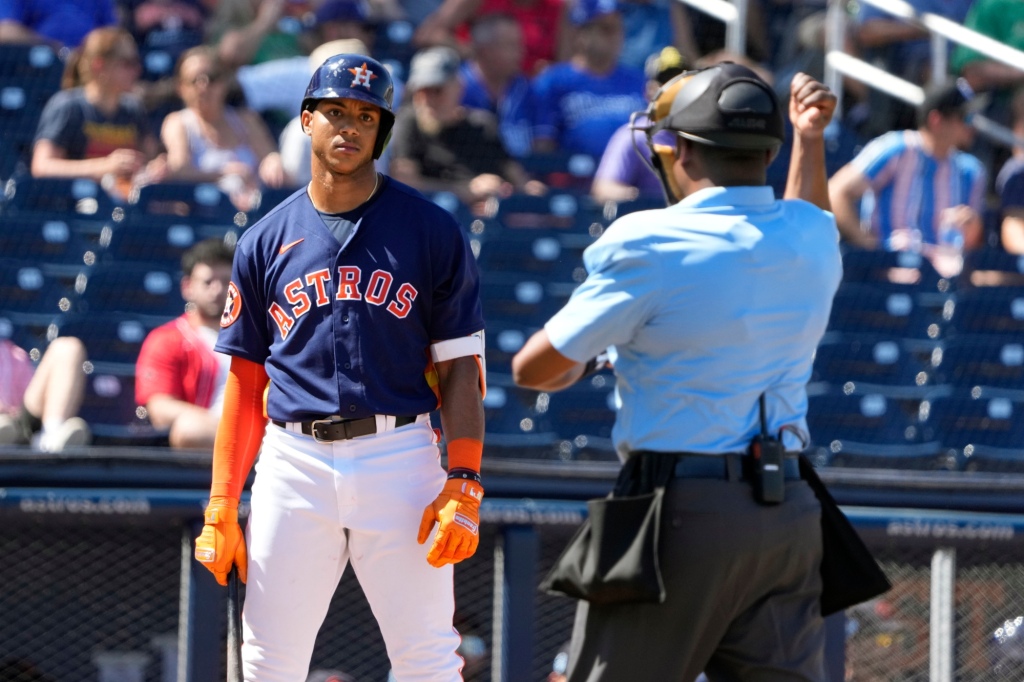We’ve had a few days to absorb the version of Major League Baseball that will be played in 2023, and one thing is clear: some batters and pitchers are no more accustomed to the sight of a clock counting down the seconds than viewers sitting at home watching on their televisions.
To some, the clock is an affront to tradition. To others, it’s an unobtrusive necessity. To many spring training participants – particularly the men who keep their feet in the batter’s box and deliver every pitch quickly – it’s actually been more than a few days since the new rules went into effect.
For them, there’s no need to speculate about the worst thing that can happen in a baseball world governed by the new rules: the omnipresent timer, limits on stepping off the mound, limited shifting and bigger bases. All of the “new” rules have been tested in the minor leagues already. Some of the worst, weirdest and wildest consequences of these rules have already been realized in Triple-A games.
Like on May 13 of last year. The Oklahoma City Dodgers were playing the Round Rock Express. Oklahoma City loaded the bases with two outs in the ninth inning of a 5-5 game. Jesus Tinoco, pitching for Round Rock, disengaged with the rubber three times during one plate appearance – a balk – and Drew Avans trotted home from third base with the go-ahead run. That made the difference in a 6-5 Dodger win.
Or on April 21, in a game between the St. Paul Saints and Toledo Mud Hens. Saints pitcher Devin Smeltzer got not one, but two strike-three calls without delivering a pitch: one to the first batter in the bottom of the first, Zack Short, and another to the leadoff batter in the second, Daz Cameron.
Short and Cameron weren’t the only players working slowly relative to the pitch timer, but as Saints play-by-play man Sean Aronson explains, they were the only ones penalized.
“The next day I went and talked to Smeltzer and he said he felt bad for the hitters,” Aronson said via email,…
Read the full article here







